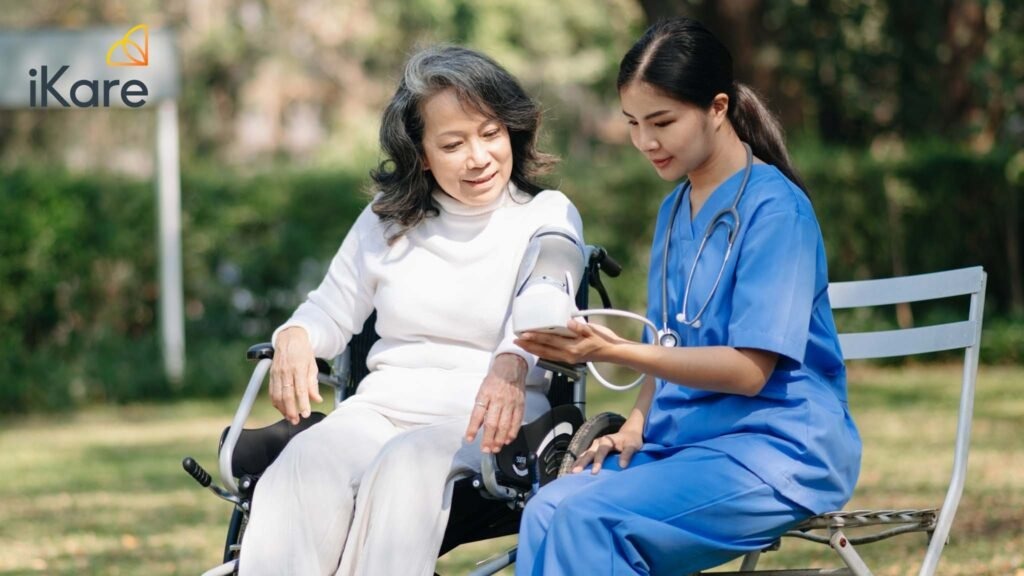Understanding Dementia in Singapore: Causes, Symptoms, Treatment Options, and Support for Families
Dementia is a condition that affects the brain and can lead to a decline in cognitive abilities, including memory, reasoning, and communication skills. In Singapore, dementia has become a significant public health concern, especially as the population ages. It is crucial for people to understand the causes, symptoms, and available treatment options for dementia to provide better care and support for those affected by it. In this article, we will explore the nature of Dementia Singapore, its impact on individuals and families, and the various support systems available for caregivers.
What is Dementia?
Dementia is not a single disease but a general term used to describe a group of symptoms affecting memory, thinking, and social abilities. Alzheimer’s disease is the most common cause of dementia, but there are other types, such as vascular dementia, Lewy body dementia, and frontotemporal dementia. Each type has its own characteristics, but all of them impact a person’s ability to perform daily tasks, communicate, and engage with others.
Causes and Risk Factors
The exact cause of dementia is still not fully understood, but there are several known risk factors that increase the likelihood of developing the condition. Age is the most significant risk factor, with people over the age of 65 being more likely to develop dementia. Other risk factors include genetics, family history, high blood pressure, diabetes, smoking, and a lack of physical activity. While some risk factors cannot be controlled, others can be managed through lifestyle changes to reduce the risk of dementia.
Symptoms of Dementia
Dementia symptoms vary depending on the type of dementia and the individual. However, some common signs include:
- Memory loss: Forgetting recent events, appointments, or names of familiar people.
- Difficulty with communication: Struggling to find words or follow conversations.
- Confusion and disorientation: Getting lost in familiar places or having difficulty recognizing loved ones.
- Mood and personality changes: Experiencing mood swings, irritability, or withdrawal from social activities.
- Poor judgment: Making uncharacteristic decisions or displaying a lack of awareness of personal safety.
Diagnosis of Dementia
Diagnosing dementia involves a thorough medical evaluation, including a physical exam, mental status testing, blood tests, and brain imaging (such as MRI or CT scans). Early diagnosis is crucial for managing the disease and planning appropriate care. Healthcare professionals will assess the individual’s symptoms, medical history, and family history to determine the cause and extent of the cognitive decline.
Treatment Options for Dementia
While there is no cure for dementia, treatments are available to manage symptoms and improve quality of life. Medications such as cholinesterase inhibitors (donepezil, rivastigmine) are commonly prescribed to help manage memory and thinking problems in people with Alzheimer’s disease. For other forms of dementia, treatments may vary, and doctors may recommend medications to address specific symptoms such as mood swings or agitation.
Non-medical therapies, including cognitive stimulation therapy (CST), memory training, and reminiscence therapy, can also be beneficial. These therapies aim to maintain cognitive function and improve mental well-being. Additionally, a supportive environment and care routines can help manage daily activities and reduce the burden on caregivers.
Caregiving and Support for Families
Caring for a loved one with dementia can be emotionally and physically demanding. Family members and caregivers often experience stress, burnout, and feelings of isolation. However, several organizations in Singapore offer support services, including counseling, respite care, caregiver training, and dementia-specific day care centers.
The Dementia Singapore organization plays a significant role in supporting those affected by dementia. They offer a range of services, including education, community outreach, and programs for caregivers. Local hospitals and healthcare providers also have specialized teams to support individuals living with dementia and their families.
Creating a Dementia-Friendly Society
As Singapore’s population continues to age, there is a growing need for a dementia-friendly society that can support individuals with dementia in living with dignity and independence. This includes public education to reduce stigma, training for healthcare workers and first responders, and creating environments where individuals with dementia can thrive.
Conclusion
Dementia is a serious condition that requires understanding, compassion, and proactive care. In Singapore, efforts are being made to provide better support and resources for individuals living with dementia and their families. By staying informed and involved, we can work together to create a society that embraces and supports those affected by dementia, ensuring they live fulfilling lives with the necessary care and dignity.







